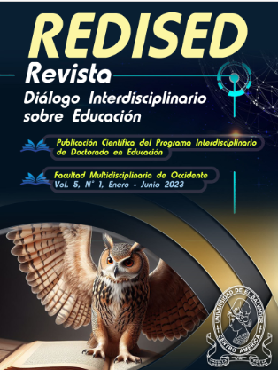Uso de Herramienta de Supervisión Remota de Exámenes en Línea Durante Covid-19
Experiencia de Docentes
Keywords:
remote monitoring, proctoring tool, proctoring, online exams, online proctoringAbstract
: Due to the COVID-19 pandemic, face-to-face classes were suspended, but quickly had to adapt to emergency remote education, using as main resources the tools for videoconferencing and educational platforms. Examining students generated concern and uncertainty in teachers and educational entities since there was no guarantee that students would commit dishonest actions when answering digital exams, so Galileo University implemented a tool for remote supervision of digital exams in its educational platform. With the main objective of describing the experience that teachers of Universidad Galileo have had when activating remote supervision in online exams during COVID-19 during the years 2020 to 2022, a quantitative study was conducted, with an exploratory-descriptive approach, in which 35 teachers of the university participated. As a result, teachers who indicated using this type of supervision detected that student committed dishonest actions such as leaving the exam, opening other pages, chatting, among others. As a main conclusion, it is evident that the remote supervision tool has supported and facilitated the teaching work when taking online exams, since it promotes educational quality by ensuring that students answer the online exams without committing dishonest actions and thus certifying their knowledge
Downloads
References
Banco Interamericano de Desarrollo -BID-(2020),. Educar en pandemia: entre el aislamiento y la distancia social, https://publications.iadb.org/es/publications/spanish/document/Educar-enpandemia-Entre-el-aislamiento-y-la-distancia-social.pdf
Banco Interamericano de Desarrollo -BID-(2020),. La educación superior en tiempos de COVID-19, https://publications.iadb.org/es/publications/spanish/document/La-educacion-superioren-tiempos-de-COVID-19-Aportes-de-la-Segunda-Reunion-del-Di%C3%A1logo-Virtual-conRectores-de-Universidades-Lideres-de-America-Latina.pd
Barnes, C. y Paris, B. (2013). An analysis of academic integrity techniques used in online courses at a southern university. 1-9. https://www.researchgate.net/publication/264000798_AN_ ANALYSIS_OF_ACADEMIC_INTEGRITY_TECHNIQUES_USED_IN_ONLINE_COURSES_AT_A_ SOUTHERN_UNIVERSITY
García-Peñalvo, F., Corell, A., Abella-García, V. y Grande M. (2020). La evaluación online en la educación superior en tiempos de la COVID-19. Education in the Knowledge Society, (12). 1-26. https://doi. org/10.14201/eks.2301312
Grande-de-Prado, M., García-Peñalvo, F., Corell, A. y Abella-García, V. (2021). Evaluación en Educación Superior durante la pandemia de la COVID-19. Campus virtuales. 10 (1)- 49-58. http://hdl.handle. net/10366/145122
Holden, O., Norris, M. y Kuhlmeier, V. (2021). Academic integrity in online assessment: A research review. Frontiers in Education. (6). 1-13. doi: 10.3389/feduc.2021.639814
Inga, D. y Aguirre, F. (2021). El enfoque de la educación virtual desde una perspectiva holística frente a la pandemia del Covid-19.Revista Cátedra, 4(1), 81-97. https://revistadigital.uce.edu.ec/index. php/CATEDRA/article/view/2727/3471
Miguel, J. (2020). La educación superior en tiempos de pandemia: una visión desde dentro del proceso formativo. Revista Latinoamericana de Estudios Educativos. México. vol. L, núm. Esp.-, pp. 13-40, 2020. https://www.redalyc.org/jatsRepo/270/27063237017/html/index.html
UNESCO IESALC. (2020). Covid-19 y educación superior: de los efectos inmediatos al día después. Análisis de impactos, respuesta y recomendaciones. París, Francia: UNESCO. http://www.iesalc.unesco. org/wp-content/uploads/2020/04/COVID-19-060420-ES-2.pdf
Downloads
Published
Issue
Section
License

This work is licensed under a Creative Commons Attribution-NonCommercial 4.0 International License.


